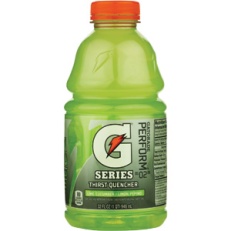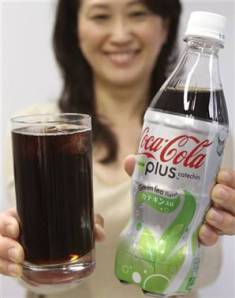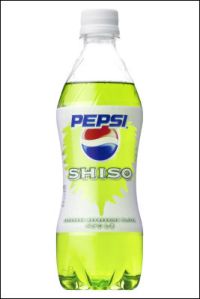 Would you drink a cucumber lime-flavored Gatorade? How about blueberry mint-flavored water? An article on Beverage Industry on emerging beverage trends claim that vegetable-flavored beverages are increasingly popular because of their “healthy halo” (article link here). With everyone focusing on healthier options, it makes sense that vegetable flavors reach mainstream status and consumers seek to take in more vegetables. After all, berry and other fruit-flavored beverages can only deliver so much momentum. That said, the article describes that consuming a vegetable-only flavor is still in uncommon and many beverage options are a combination of both vegetables and fruits. How will this particular flavor trend impact beverage makers? Will these drinks ever reach a level of popularity to take down mainstream colas, juices, or waters?
Would you drink a cucumber lime-flavored Gatorade? How about blueberry mint-flavored water? An article on Beverage Industry on emerging beverage trends claim that vegetable-flavored beverages are increasingly popular because of their “healthy halo” (article link here). With everyone focusing on healthier options, it makes sense that vegetable flavors reach mainstream status and consumers seek to take in more vegetables. After all, berry and other fruit-flavored beverages can only deliver so much momentum. That said, the article describes that consuming a vegetable-only flavor is still in uncommon and many beverage options are a combination of both vegetables and fruits. How will this particular flavor trend impact beverage makers? Will these drinks ever reach a level of popularity to take down mainstream colas, juices, or waters?
Beverage manufacturers constantly monitor flavor trends and Pepsi has locked into this trend since 2011, when they launched a Cucumber Lime flavor under the Gatorade franchise. Pepsi Japan’s limited-time releases of Pepsi Shiso and Pepsi Ice Cucumber also proves this point. Since most (if not all) beverage organizations monitor consumption trends, it would not be surprising to see manufacturers build momentum and launch more vegetable-infused variants over the next few years. It just needs to make its way into the North American market. And this is beginning to catch on more in the U.S.; research firm Mintel tracked over 100 U.S. beverage innovations with vegetable or vegetable-fruit flavors launching in the past year, representing a 20% increase from 2013. It still stands to be seen whether these vegetable-flavors will launch under the most popular and mainstream beverage lines like Gatorade, Coke, and Pepsi or launch under emerging beverage brands. No matter the case, any approved product launch puts sales pressure on other items to perform or risk losing the shelf space. This flavor trend may not have been successful replacing other products’ sales to justify shelf space though it looks that will soon change.
On the topic of reaching critical mass to take down mainstream product categories, it doesn’t look promising. This isn’t to say that vegetable-flavored beverages will not reach mainstream status themselves, just that it will not overtake other mainstream categories. For one, this is a flavor trend that integrates the product under a specific beverage segment; it is not a standalone beverage category in itself. Consider these vegetable-flavored products to pattern after Campbell’s V8 juices or Bolthouse Farm smoothies, where they represent a growing portion of a drink category (juices and smoothies, respectively) but are not large enough to overtake juices as a whole or smoothies as a whole. Regardless, these healthier options will compete aggressively for retail shelf space alongside other beverage options.

The Beverage Industry article also describes other beverage flavor trends, include a growing preference toward sweet and spicy combinations. Consumers increasingly look for flavors that will satisfy multi-sensory experiences. Some examples include chocolate gojuchang tea (gochujang is a Korean spicy sauce), spicy ginger mango juice, and mango jalapeno water. So be on the lookout, soon enough you’ll see more cross-flavored beverages on store shelves. Be in sweet and spicy or vegetable-fruit flavored, it will sound exotic but your taste buds and your body will thank you for choosing that over another drink.


